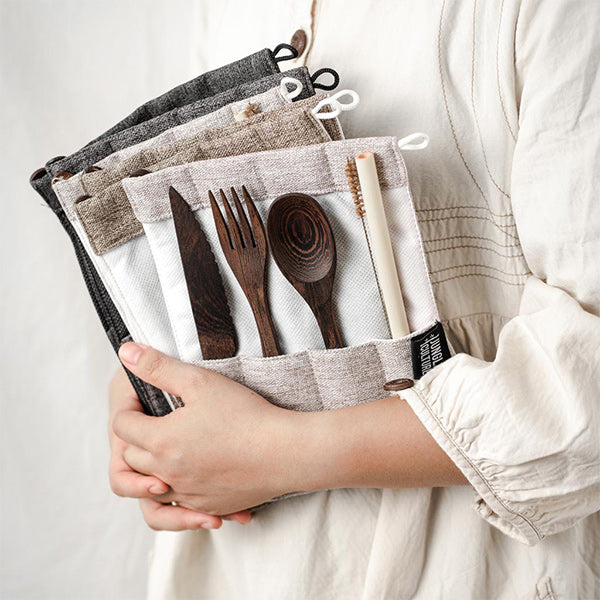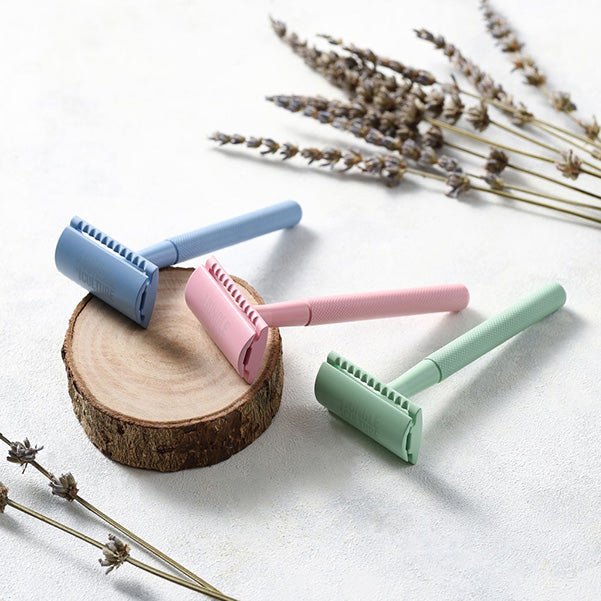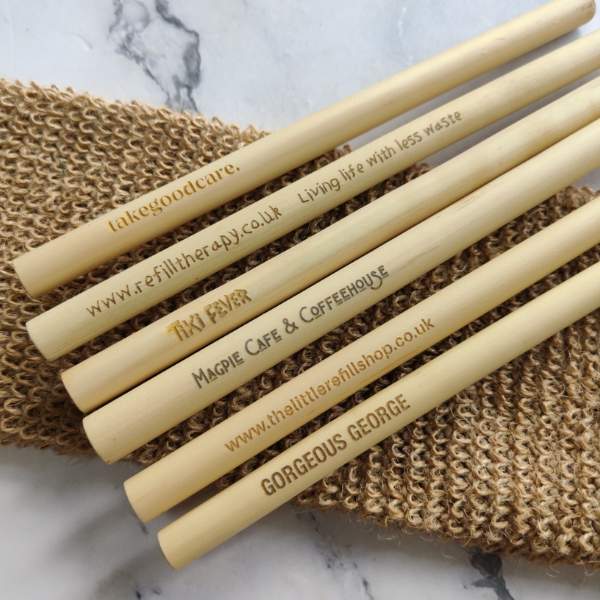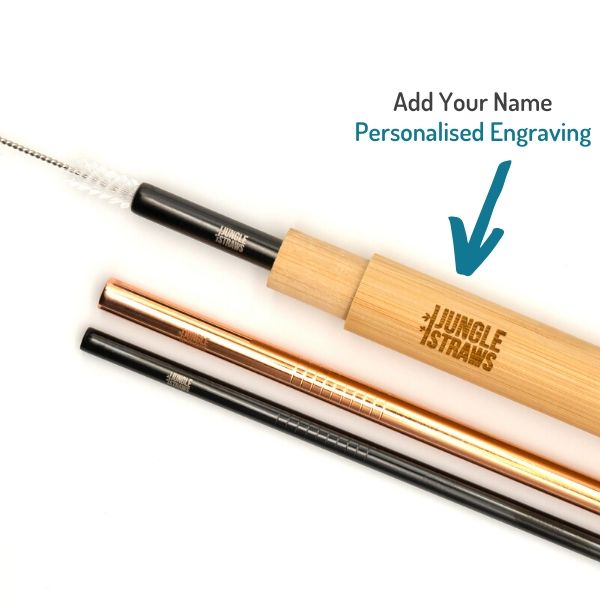How to Open a Gift Shop in the UK
Table of Contents
- Step 1: Writing a gift shop business plan
- Step 2: Choosing a name for your gift store
- Step 3: How to find the perfect area for your gift shop (Brick & Mortar)
- Step 4: Setting up a gift shop (Brick & Mortar)
- Step 5: Selling gifts online (How to open a gift shop online)
- Step 6: How to find products to sell in your gift store (Finding gift store suppliers)
- Step 7: Essential business purchases
- Step 8: The legal bits
- Step 9: How to find staff for your gift store
- Step 10: Opening time!
Setting up a gift shop can be a daunting process. If this is your first time opening a shop or even your first time running a business then it can feel like spinning plates.
From branding to rental contracts, there are mistakes and pitfalls in every aspect of starting a gift shop in a brick and mortar location or online!
At Jungle Culture, we believe in supporting fellow entrepreneurs, so we’ve put together this simple-to-follow, step-by-step guide to help you start a gift shop online or in a physical retail space.
We’ll run through everything, and by the time you’re finished reading, you’ll have all the knowledge you need to get started.
Before we jump into the step-by-step guide. Here are a few resources that might be helpful to you.
Resources:
Enterprise programmes - Search enterprise programmes in your area to help you get started.
Financing options - Different options to help you get off the ground.
Set up a company - Step by step guide to becoming a real business.

Step 1: Writing a gift shop business plan
A little bit of planning goes a long way, but when it comes to writing a business plan, our advice is not to be too detailed. Don’t get too bogged down in the details, but write down your ideas and add to the plan as you work your way through the process.
The important thing is to get started, keep taking steps forward and don’t get paralysis by analysis.
The Prince’s Trust has downloadable business plans and you can find a great one here. It’s simple to complete and will help you organise your ideas.
There are questions in the business plan like “What is your educational background?” which is quite unimportant unless you plan on presenting your business for investment, but other questions like “Imagine your ideal customer” might help you when it comes to designing your logo, writing your sales materials and choosing a shop location.
If you’re planning on opening an eco store. We have written a dedicated guide to opening a zero waste store.

Step 2: Choosing a name for your gift store
How to choose a name for a gift shop
Choosing a name for a business can be extremely important. A name says a lot about what the business is, what it sells and what it stands for, but how do you choose a store name that sticks in people’s minds?
According to All Business, you need to follow a few important rules.
1. Avoid names that are difficult to spell or pronounce
You want your customers to be able to speak about your store easily and freely and you want people to be able to search for your store easily online and on social media platforms, so choose a name that’s simple.
Ask a few of your friends and family to spell it and say it to make sure that other people also think your name is simple.
In addition to spelling and pronunciation, also look at how the name is written. For example, if your name is two words like Ego Onions. In a web address, it would look like this:
www.egoonions.com
This could potentially be read as egoon ions. It’s a pretty silly example, but you get our point!
2. Do not choose a name that limits your company
In 20 years, your business may not exist, but if it does, it might be selling something completely different. You may find after 2 years of selling gifts that your true passion is in homewares, so choose a name that could apply to anything.
Don’t pigeonhole your business by calling it “Gifts for sale”. Try something more broad… Think Amazon, Apple, Uber etc.
3. Make sure that all social platforms and domains are available and grab them as soon as possible
Use Namecheckr to do this. Simply type in your business name and Namecheckr will check all social platforms + .com, .co.uk, .net domains.
If the Facebook, instagram and domain name have already been taken, then consider switching to a different brand name.
4. Write a list and ask for feedback
Don’t choose the first name that you think of. Write a list of at least 50 possible names. Take your time, spend two weeks thinking about the names and then ask other people for their input.
Don’t make a hasty choice. In two weeks and after a period of reflection, you might reconsider.
Ultimately, a business name is an important choice. Make it with care and do not rush your decision, but once you’ve chosen your business name, register an account on every social media platform (even if you don’t use them), register the domain and move on.

Step 3: How to find the perfect area for your gift shop (Brick & Mortar)
When choosing a store location, consider the following factors:
- Footfall (amount of people walking past)
- Access (parking nearby, is it paid, free, plenty of space?)
- Competition (are there other gift shops nearby? What do they sell?)
- Zoning restrictions (there may be local laws limiting opening hours etc.)
- Local crime (Speak to people to find out about crime rates locally)
All of these factors will help you decide which area is best for your store, but don’t underestimate your gut.
Sometimes, the best store location is the one you feel instinctively drawn to!
Most of the above can be ascertained by simply walking around. To check footfall in a certain area, just stand and count the people that walk past.
For access, simply look at where you would park and how much it would cost.
When checking local competition, look in different shops and see what they sell. Remember that just because another gift shop exists, that doesn’t mean there isn’t room for one more!
Importantly, speak to local people and see what they have to say. Local shoppers will give you valuable insights into what they would like to see in their town.

Step 4: Setting up a gift shop (Brick & Mortar)
Once you have found the area that you want to locate your store in, it’s time to find the specific shop location.
This step may take a few months, so it’s important that you continue to look for suppliers, gather pricing information and continue with the process in the meantime.
Things to consider when renting a shop front:
Business rates - Use HMRC’s business rates calculator to estimate the tax burden of your store.
Rental prices- It goes without saying that a prime location will cost more to rent, but in some cases it may be worth spending more to increase exposure to your shop. Consider your own budget and circumstances when deciding where to locate your shop. You can check rental prices in your area at estate agents.
Lease terms - Signing a longer lease generally means you’ll receive cheaper rent, but it also means that you’re locked into a lengthy contract that may cost some money to exit. Generally shop leases run from 1 year to 5 years and the more time you can commit, the bigger the discount.
If you’re an experienced shop owner with bundles of confidence, then we’d recommend locking in a lower price, whereas if you’re new to running a gift store, we’d urge you to edge on the side of caution.
Make sure there is a break clause in the contract and you understand what would happen if you did want to end the contract early.
Here is a breakdown of a landlord’s and tenants legal responsibilities for commercial properties in the UK.

Step 5: Selling gifts online (How to open a gift shop online)
Setting up an online store can be simple or it can be extremely complicated. How much effort you put into it will generally determine how much you get back out of it.
First step: Register your domain.
Think of a domain as where your business lives. You can buy them online from just £0.99 to thousands of pounds for a domain like food.com
Domains are quick and easy to purchase. Simply head over to Names Domains, search your domain and purchase it. It’s that simple and very very quick.
Once you have a domain, you’ll be charged a yearly fee to “host” the domain, which is similar to online ground rent. Unlike ground rent, it’s normally very affordable.
Second step: Figure out branding
Branding includes everything from your logo, to your brand colour palette to your fonts and illustrations.
If you’re tech-savvy and well versed in computing, then you can create your own logo and other brand elements using Adobe programmes. Alternatively, Canva is a tool that offers a lot of the same functions of Adobe, but no experience is required.
If you don’t want to handle any branding-related tasks, you can find designers ranging from very cheap to relatively expensive on Fiverr. Fiverr is a freelance marketplace where you can search for digital workers to help you with a task.
Be warned, you get what you pay for. If you hire someone for $25 to make you a logo, it may be copied from elsewhere and adjusted to fit your brand name, whereas if you pay $250 you might get something a little bit more bespoke. Pay even more and… you see what we’re saying!
Step three: Build your website (template)
At this point you don’t have any products, but that shouldn’t stop you from building your website.
As a new business, the best, quickest and cheapest route to choose is a website builder such as Shopify, Squarespace or Wix.
Jungle Culture uses Shopify and we’d certainly recommend Shopify for new businesses. It’s easy to use, it integrates with a ton of different softwares and it’s relatively inexpensive.
Once you have an account, you’ll need a theme. If web hosting is your landlord, and Shopify is your house, then a theme is your interior decor. A theme provides the building blocks for your website and allows you to create a professional looking site in hours.
You can purchase a “theme” from Shopify or from an external source here. You can also follow this video tutorial which runs through every single step to building a shop on Shopify.
Every website needs a few pages to be compliant with UK and sometimes international law. Those pages are:
1. Company information page
This page includes critical information about your business as detailed below:
Company name
Company registered number
Place of registration, such as England and Wales
Registered office address
Your company name, postal address and company email address
How to contact your business via non-electronic means
Your VAT number, even if the website is not being used for ecommerce transactions
The name of any trade bodies or professional associations that the business is part of, including membership or registration details.
2. GDPR regulations page
This page includes information about how your website will use customer data. You can name this page “Privacy Policy” and you can download a free template here.
3. Delivery and returns information
Legally you must state your delivery information and returns information. This is really easy to do from Shopify’s settings’ page and just remember that you must accept returns up to a minimum of 14 days in the UK.
4. Terms of service
A terms of service page typically details the legal duties of your store. You can download a template here.
At this point, it’s a good idea to start looking for suppliers and products, but you can also use your spare time to learn about the different ways you can improve your online store and attract customers to it. Here are a few resources you can use to better your understanding of online shopping:
E-commerce resources for gift shops
SEO Guide - Search Engine Optimisation will help your site appear more prominently in Google. It’s important because the more people that find your shop, the more chance that someone buys something.
Affiliate marketing guide - Joining an affiliate marketing scheme as a shop allows other websites to refer customers to you and gain a commission every time they purchase. This can be an incredibly simple and effective way to generate online store revenue.
Social media advertising - Advertising on social media can allow your store to reach a national audience and give you a better understanding of who your customers are.
Google Ads - Google Ads are simple to set up and can drive sales on multiple products.
Shopify apps - Shopify integrates with thousands of apps that help boost your sales and run your business. Check out this guide to the 30 best Shopify apps.
Email marketing guide - Don’t let your customers checkout and leave forever. Connect with them through their email inbox. Set up automatic campaigns and promote new products with monthly or even weekly emails.
Etsy setup guide - Some suppliers won’t allow you to sell on Etsy, but if you’re making your own products or have flexible suppliers then you can put your products in front of millions of buyers instantly.

Step 6: How to find products to sell in your gift store (Finding gift store suppliers)
Finding trusted suppliers can be a big job. Many suppliers insist on large MOQs (Minimum order quantities) and restrictive terms, whilst other suppliers can be a godsend!
Here are some things to look for when searching for suppliers:
- Low MOQs - You may need 10-15 suppliers, so if each of them has a £500 MOQ, then the investment can be huge.
- Access to photography - When you start a new business, you’ll be very busy and likely won’t have time to take photos. Some suppliers offer photography which is free to download. Others also offer web descriptions, videos and more that you can use on your social media channels.
- Trustworthiness - Is a company trustworthy? Search for them on Google and find some reviews.
- Do the products sell? - This can be tricky to find out. If the company sells on Etsy then you can see their sales totals on their brand page which can help. If they sell on Faire then you can see their review totals. A high total indicates that many other shops have been successful in selling their products.
- Cost - How much are the products? As a retailer you should be typically looking to make at least double on everything you sell in order to cover your costs and pay your staff’s wages. If a product can be bought wholesale for £5, it should be sold for at least £10 as a general rule.
Here’s where to find suppliers:
- Faire - The world’s largest wholesale marketplace. If you sign up through our referral link, you’ll receive £100 in credit + free shipping for a year with our brand.
- Ankorstore - Mainly operating in the EU, you can find a lot of European brands on Ankorstore. Sign up via our link to receive 100EUR in credit. (Use code “LIFT-RWCWLUA8” at checkout)
- Direct communication - The above websites take a fee from the brand, so companies generally prefer it if you buy direct and they might be willing to offer you incentives such as free products or a big discount if you’re able to do so. The best way to contact a brand is via their wholesale page.
If you’re interested in stocking Jungle Culture products, we offer no MOQs, access to our photography, videos and more + new customers will receive a 15% discount on wholesale purchases using the code “15-DISCOUNT”.
Remember that to gain access to our wholesale website you need to contact us first. Tell us a bit about your business, where you’re located and we’ll get you set up in no time.
What to buy from suppliers:
- Gifting products - Choosing products for your gift store should be largely based on what people gift each other. You can use your gut instinct, but it’s probably best to ask suppliers which products are most popular around Christmas. This will help to identify the best gifting products.
- Impulse buys - Think under £5 and everybody either needs it or can be tempted by it. Typical impulse buys include chocolate, candles and soaps, but test different products and find something that works well for you.
- Everyday buys - Most sales will come from gifts, but that doesn’t mean you can’t stock a few everyday essentials. Try to find products that people would buy as a giftAND products that people would buy for themselves.

Step 7: Essential business purchases
Aside from stock, you can split your purchases into a few groupings:
Shop fittings & shop operations
Shop fittings are things like racks, shelves, signs, tables etc.
Whilst shop operations are things like cash registers, barcode scanners etc.
You should definitely shop around, but here is an example of a website selling shop fittings.
And cash registers.
Note: To take payments via card you can sign up to Stripe and buy a card payment terminal here.

Step 8: The legal bits
Running a shop isn’t all branding and sales. There are also some boring bits too!
Insurance - We won’t give legal advice on which kinds of insurance you need and don’t need, but you can compare different types of business insurance at GoCompare here.
Policies - If you’re planning on employing people, writing a brief guide which explains how your employees should conduct themselves in the workplace is a great idea. It helps to reinforce your company culture and also provides clear wording for if an employee ever breaks your policy. You can find a policy guide here.
Accounting - You should arrange your accounts before you start a business to avoid issues further down the line. Find an accountant first and they’ll normally have a bookkeeper that they work closely with + an accounting system that they prefer to use. You can search for an accountant here.
Health + safety - Nowadays, all businesses no matter the size have health and safety guidelines which you can find here.
As far as we know, this covers most legal requirements of a shop owner, but we are not legal experts and it’s important to do your own research or appoint a legal professional to help you. Hopefully, the information that we provide helps get you started, and for further information check out this article on retail law.

Step 9: How to find staff for your gift store
We’d always recommend working in your business for a period of time to understand it on a deeper level, but at a certain point you may wish to bring in staff to help you manage on a day-to-day basis.
Finding staff can be difficult for a small business and it’s not always easy to tell who is reliable and who isn’t.
In our experience, the best way to find retail staff is to advertise on a local Facebook group, put flyers in the window and host interviews. Make sure that you’re prepared with questions in mind and write a profile of the type of worker you are looking for before your search begins.
You can find a full guide to hiring staff here.

Step 10: Opening time!
You should by now have received your stock, set up your store and be ready to take payments. Now it’s time to open your shop.Make sure to cause a big splash. Put up flyers, offer opening weekend discounts and even bring in some freebies to give your first customers.
Anything that you can think of to bring in more customers is worth trying, give it a shot and let us know below what worked best. It may also help other new business owners.













Leave a comment (all fields required)